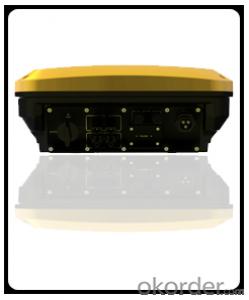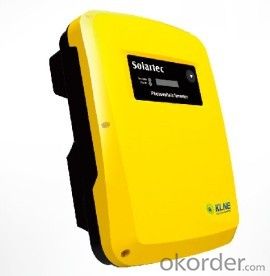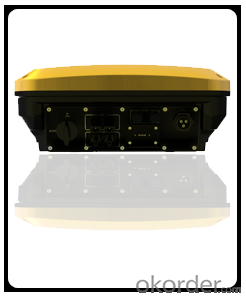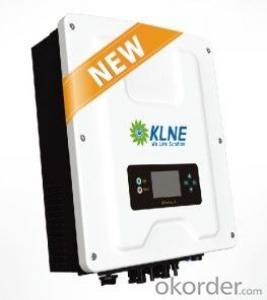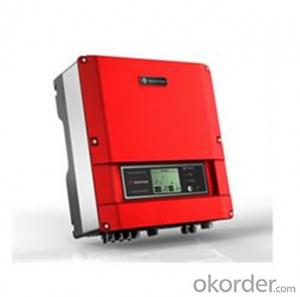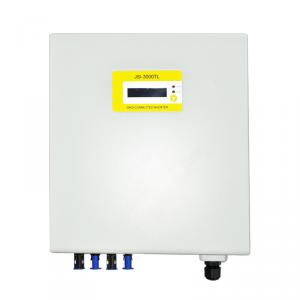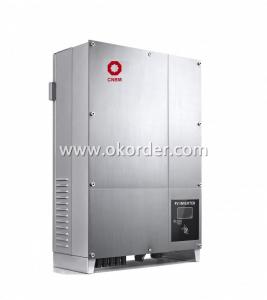Powland 3000w Solartec 3600 On Grid Inverter with WiFi
- Loading Port:
- Shanghai
- Payment Terms:
- TT OR LC
- Min Order Qty:
- -
- Supply Capability:
- 10000 set/month
OKorder Service Pledge
Quality Product, Order Online Tracking, Timely Delivery
OKorder Financial Service
Credit Rating, Credit Services, Credit Purchasing
You Might Also Like
Solartec 1500,2000,2500,3000,3600,4000,4600,5000
1MPPT, single phase
IP 65
New mold with Pure thick aluminum crust.
Efficient
■ Efficiency of up to 97.6 %
■ TransformerlessSafe
■ Integrated DC switch
■ Comprehensive protection functionsFlexible
■ LCD backlight
■ For indoor and outdoor installationSimple
■ ‘Plug and play’connection for easy installation
■ Friendly interface, easy to install and maintain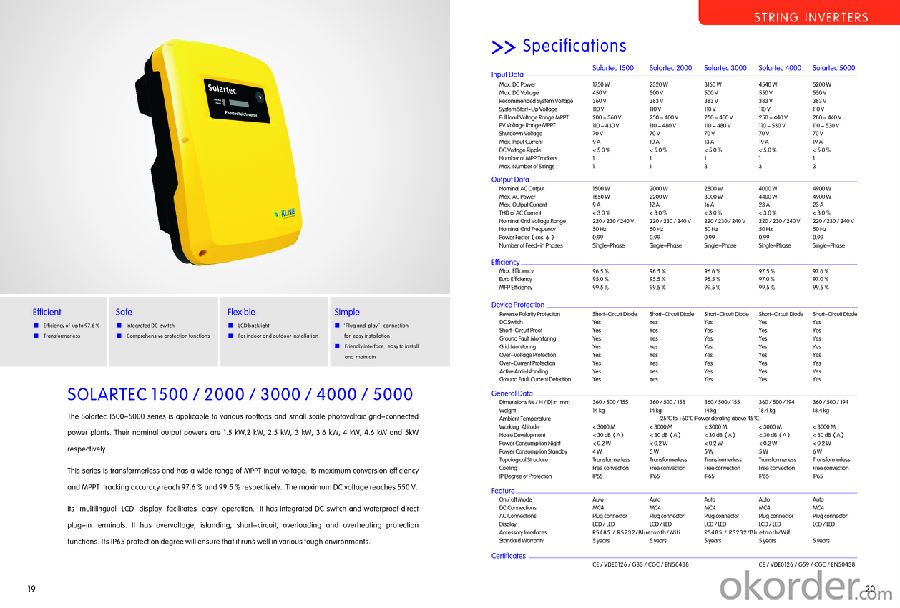
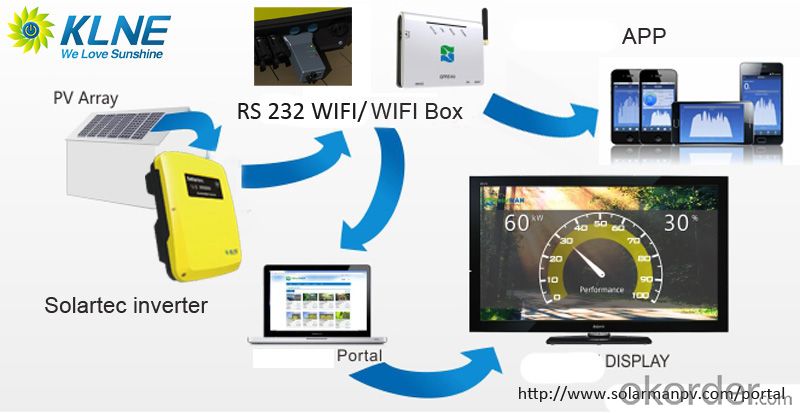
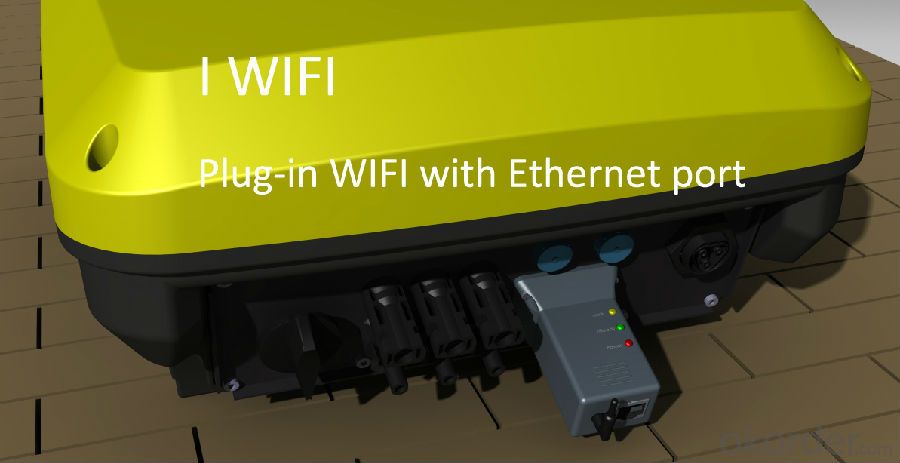
- Q: Are there any government incentives for installing a solar inverter?
- Yes, there are government incentives available for installing a solar inverter. Many countries offer tax credits, grants, or subsidies to promote the use of renewable energy sources like solar power. These incentives aim to encourage homeowners and businesses to adopt solar energy systems, including solar inverters, by offsetting the initial installation costs and promoting sustainability. It is advisable to check with local authorities or consult renewable energy organizations to understand the specific incentives available in your region.
- Q: Can a solar inverter be used with solar-powered security systems?
- Yes, a solar inverter can be used with solar-powered security systems. A solar inverter is responsible for converting the DC power generated by solar panels into AC power that can be used to power various electrical devices, including security systems. By using a solar inverter, solar-powered security systems can efficiently utilize the energy generated by solar panels to operate effectively.
- Q: What are the different power output modes of a solar inverter?
- The different power output modes of a solar inverter include grid-tie mode, off-grid mode, and hybrid mode. In grid-tie mode, the inverter synchronizes with the utility grid and feeds excess solar power back to the grid. Off-grid mode allows the inverter to operate independently from the grid, providing power to a standalone system or battery storage. Hybrid mode combines both grid-tie and off-grid capabilities, enabling the inverter to utilize solar power while still being connected to the grid for backup or additional power supply.
- Q: How does a solar inverter handle frequency variations in the grid?
- A solar inverter handles frequency variations in the grid by continuously monitoring the frequency and adjusting its own output accordingly. When the grid frequency increases, the inverter reduces its output frequency to match, and vice versa. This helps maintain a stable and synchronized connection to the grid, ensuring efficient power transfer and protecting both the inverter and the grid from potential damage or instability.
- Q: Do I need a special inverter for a battery storage system?
- Yes, a special inverter is required for a battery storage system. Unlike traditional grid-tied solar systems, a battery storage system needs an inverter that is capable of converting the direct current (DC) power produced by the batteries into alternating current (AC) power that can be used to power household appliances or fed back into the electrical grid.
- Q: Can a solar inverter be used in remote locations?
- Yes, a solar inverter can be used in remote locations. Solar inverters are designed to convert the DC power generated by solar panels into AC power that can be used to power electrical devices. They can be used in off-grid or remote locations where access to a traditional power grid is not available.
- Q: Can a solar inverter be used with smart home systems?
- Yes, a solar inverter can be used with smart home systems. Many modern solar inverters are designed to integrate with smart home technology, allowing homeowners to monitor and control their solar energy production and consumption through their smart devices. This integration enables better management of energy usage, optimization of solar power generation, and the ability to remotely monitor and adjust the inverter settings for improved efficiency and convenience.
- Q: What are the key factors affecting the installation process of a solar inverter?
- The key factors affecting the installation process of a solar inverter include the site location and orientation, electrical wiring and connections, proper grounding, adequate ventilation and cooling, and compliance with local regulations and safety standards. Additionally, the choice of mounting structure, the proximity to the solar panels, and the availability of a reliable power supply are also important factors to consider during the installation process.
- Q: Can a solar inverter be used with solar concentrators?
- Yes, a solar inverter can be used with solar concentrators. Solar concentrators focus sunlight onto a smaller area, increasing the intensity of the light. The solar inverter's primary function is to convert the DC power generated by the solar panels into AC power suitable for use in homes or businesses. Therefore, it can still be used to convert the enhanced DC power generated by solar concentrators into usable AC power.
- Q: Are there any limitations on the angle of the solar panels when using a solar inverter?
- Yes, there are limitations on the angle of the solar panels when using a solar inverter. The optimal angle for solar panels is typically determined based on the geographical location and the season. Deviating too much from the recommended angle can result in decreased energy production.
Send your message to us
Powland 3000w Solartec 3600 On Grid Inverter with WiFi
- Loading Port:
- Shanghai
- Payment Terms:
- TT OR LC
- Min Order Qty:
- -
- Supply Capability:
- 10000 set/month
OKorder Service Pledge
Quality Product, Order Online Tracking, Timely Delivery
OKorder Financial Service
Credit Rating, Credit Services, Credit Purchasing
Similar products
Hot products
Hot Searches
Related keywords

